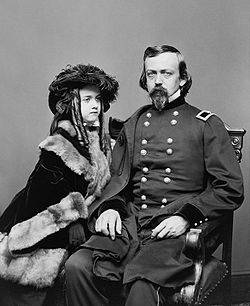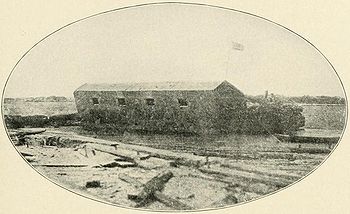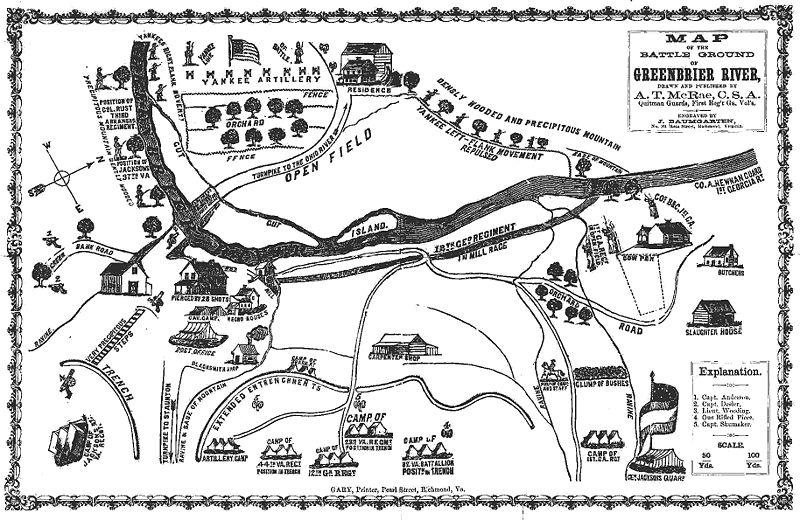 |
| CSS Manassas |
One ship built by the Confederacy to break the blockade was the CSS
Manassas. It was rebuilt from an icebreaker, and was intended to defend the Mississippi River. It was only 2 ½ feet above the water, and was covered in 1 ½ inch armor. She carried only one gun, and had an iron point on the front for ramming. It was originally built to be a privateer, but the Confederate navy seized it for the defense of the nation.
 |
| USS Richmond |
She advanced out to battle in the early dark hours of the morning 150 years ago today, October 12, 1861. It was accompanied by a “mosquito fleet,” six small and weak gun boats and three fire rafts. The Union blockade fleet off New Orleans was three wooden sloops, along with two smaller ships. The Confederate fleet's commander, Commodore Hollis, planned to have the
Manassas lead and take out the
Richmond, the largest of the Union sloops. She would be followed by the gunboats pushing fire rafts, which he hoped would destroy the rest of the Federal ships.
 |
| Manassas attacks the Richmond |
The Confederate fleet was sighted by a Union sloop, and the alarm flare went up. The
Manassas aimed for the Richmond, but the
Richmond was tied to a smaller coal ship. She struck a glancing blow alongside, but did not do significant damage. But in the collision of the blow, one of the
Manassas's two engines was disabled. At this point the fire rafts were released toward the Union vessels. Seeing them, the Federal fleet cut loose their anchors and moved down river to escape. The firerafts grounded, as did the
Manassas. All the Union ships but one also grounded down river. The Confederate's small gunboats fired at the Union vessels stranded on the bar, but although they did get a few hits, they did not score significant damage. The commander of one of the Union fleets panicked, and ordered the ship's magazine destroyed. Thankfully for the Union, the fuse was not successful and the crew returned to the ship.
 |
| Map of Head of Passes |
Although Hollis was acclaimed in New Orleans as a hero, the ship that was actually the most damaged was the Manassas. The
Manassas had been found to be too slow and unmaneuverable, the smaller gunboats too weak to do any damage, and the Federal commanders had not even made a good showing of a defense. Admiral Porter of the Union navy wrote this:
Put this matter in any light you may, it is the most ridiculous affair that ever took place in the American Navy. There is no instance during the war like it. To think that we should have to write of such a retreat is mortifying, but it stands on record, described in language that almost claims merit for the flight of the "Richmond" and her consorts, chased by a ram that was going in an opposite direction as fast as her disabled machinery would take her,— her officers thanking their stars that they got away so easily! There is nothing that can equal the comicality of Capt. Handy's performance—laying a train with a slow match to his magazine, and then hastening away in his boats with the American flag wound around him, and his remarkable antics when he found that his ship would not blow up. This presents an example unmatched in any navy in the world.
This conflict has been forgotten in the light of the more illustrious battle of the
Monitor and the
Merrimack. Because of the damage to the
Manassas the true abilities of the ironclad were not demonstrated. However, the capture of New Orleans was put off until a later date.



















